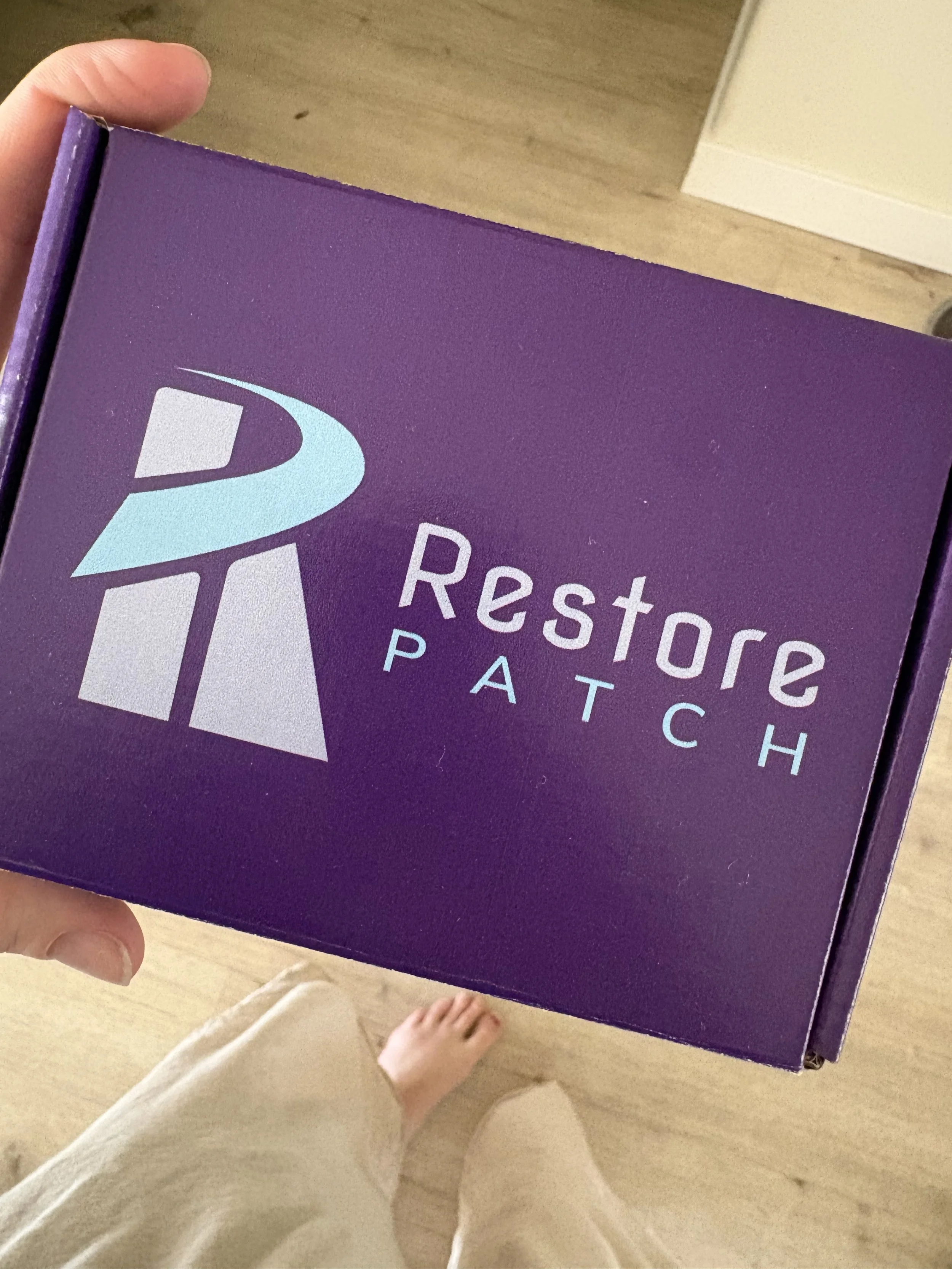Let's Talk Best Magnesium Supplements 2023
Curious about supplementing magnesium?
Here are some of the reasons you may benefit from taking a magnesium supplement, as well as the difference between all the different kinds!
Magnesium seems to be the latest "it supplement" with everyone talking about a different type they're taking regularly. But if you look into starting it you find yourself deciding between magnesium sulfate... magnesium chloride... glycinate... oxide.. and a dozen other types of magnesium. Let alone trying to figure out the right dose and what time of day to take it, it can all be a little overwhelming.
The goal of this post is to break down the importance of magnesium, who may benefit from supplementation, and then explain some of the key differences in the varying forms.
As always, this is not medical advice! Speak with your medical provider before starting a new health regimen or supplement as this is for educational purposes only :)
What is the purpose of magnesium?
Did you know that magnesium is one of the most abundant minerals in the body and is involved in hundreds of enzyme reactions and biochemical processes? For a long time, it was stated that it was involved in "over 300 reactions", but as studies continue to be done it is looking like the number is closer to 600! It is truly such an important mineral.
Research has also shown magnesium to play an important role in energy production, stress, mental health, risk of heart disease, and digestion. It is also essential in the metabolism of Vitamin D. Basically every important function in our bodies either directly is influenced by magnesium or closely related to one of these direct processes.
I also believe that we will continue finding more and more about the importance of magnesium (and all other micronutrients!) as research continues to be done.
Related Reads:
Signs you may be deficient in Magnesium
Diagnosing magnesium deficiency can be difficult because a serum test (blood work) only shows approximately 1% of the magnesium in your body- the remaining is in your bones, muscles, and other tissues. Some research even shows that a "normal" level of blood work can be associated with moderate to severe magnesium deficiency.
So how do you know if you should be taking magnesium?
Well, according to the World Health Organization nearly 75% of Americans do not intake the recommended levels of magnesium (420 mg daily) from their food. Some of the most bioavailable forms are found in magnesium-rich foods including dark, leafy greens, whole grains, nuts, coffee, chocolate, and seeds like pumpkin and chia. But, considering poor farming practices and mono-cropping some of these have a low magnesium level compared to what they once did due to poor soil quality.
Some other conditions that have been associated with low mag levels include:
vitamin d deficiency
diabetics, pre-diabetics or those with insulin resistance
eating a highly processed diet
those taking certain blood pressure medications, or those struggling with high blood pressure
gastrointestinal conditions including Crohns, Celiacs, IBS, or chronic vomiting or diarrhea
those with alcohol or substance abuse
older adults
Research has also shown correlations between magnesium levels and cognitive function, quality of sleep, anxiety, and stress management.
As you can see, the list of health conditions that are associated with magnesium levels is really extensive and we only continue finding more benefits to supplementation. Now I don't think that means everyone needs to supplement magnesium, but I do think it can be helpful for many especially if you fit into one of the categories listed above.
What are the different types of magnesium?
There are so many different forms of magnesium that you can take, each with different potential benefits and uses, that it can be a little overwhelming.
Trace Mineral Drops: this is a great starting point for any and everyone! Drinking mineral rich water helps to maintain your mineral balance throughout the day. We have a reverse osmosis water filtration in our home, so we have to make sure we are remineralizing our water! We have used these drops for several years now.
Magnesium Baths or Foot Soaks: you can either use magnesium flakes or Epsom salt and add it to warm water for a bath. If you don't like baths, you can just as easily make a foot soak. I always recommend including this in your nighttime routine for a good night's sleep thanks to magnesium's calming effect on your nervous system.
Magnesium l-threonate: this form of magnesium is one of the only forms clinically shown to cross the blood-brain barrier. This makes it great at treating issues with cognitive function, and memory, and has even been used in research for the treatment of Alzheimer’s and dementia. In clinical trial it was also shown to improve short-term memory and recall which can be promising with future studies as a natural treatment option for ADD/ADHD
Magnesium Glycinate : this is another form of magnesium that is easily absorbed and shown to have a calming effect, and is useful for anxiety, depression, and insomnia
Magnesium Malate: research shows that magmalate is easily absorbed by the digestive tract, making it a great option for replenishing depleted levels of magnesium
Magnesium citrate- This is a form of magnesium bound to citric acid. According to the Root Cause Protocol with Morley Robbins, this form of magnesium is not recommended due to the interference of citric acid of ceruloplasmin (this is part of your copper/ iron recycling system)
While each form of magnesium is used slightly differently on a cellular level, you do not need to take all of these! I would incorporate a trace mineral drop if you do not already have remineralized water, as well as eating magnesium-rich foods, and picking one form of supplemental magnesium to add to your daily routine if needed. For most people this looks like taking one of these forms with high bioavailability shortly before bedtime to help promote restorative sleep.
It is also recommended when beginning to take magnesium that you start slowly. With high doses of magnesium it has been shown to have a laxative-like effect (which for many people is a benefit that it helps to promote regular bowel movements), but starting slowly and gradually increasing to higher doses can help to prevent an upset stomach.
Magnesium Co-factors
Similarly to other elements in the body, magnesium does not just work independently from everything else! That is why it is so important that you are not just supplementing to "fix something" but incorporating other lifestyle changes that will all work together and have compounding effects. Some important substances in the digestion, uptake, and use of magnesium in the body include:
Vitamin B: good ol b vitamins help the magnesium to get inside of the cell. Some of my favorite sources of food-based b vitamins are bee pollen, beef liver, and nutritional yeast ( related reads: 6 quick ingredients to boost the nutrients in your food)
boron: this helps to keep magnesium inside of the cell. It is a component of most trace mineral drops, or you can add borax to a magnesium bath or foot soak
bicarbonate: helps the magnesium to be used by the mitochondria within the cells. You can easily make your own bicarbonate water or purchase a pre-made bicarb drink.
electrolytes: having a solid foundation of electrolytes including sodium and potassium allows your body to use magnesium effectively.
That is why when working with clients, we never jump straight into supplementation but rather build up their body’s electrolytes and nutrient reserves to be able to actually use the supplement.
My Advice When Buying Supplements
The sale of dietary supplements is not regulated or enforced-- that means there are many counterfeit products you can find online. In a recent study less than 50% of supplements tested actually contained what they were marketed to. Not only is this so scary as a consumer (because what is actually in the supplement you just purchased) but it is also not sustainable from an economic standpoint. I tend to have a more conservative approach with my clients and supplementation, believing that most things you can get from a diet of whole, nutrient-dense foods. So when I do recommend something, I want to make sure that what they are spending money on is actually what they are wanting to purchase and will help their bodies heal.
This is why whenever I link a supplement, it is only linked to Amazon if I can confirm it is distributed by the actual brand, not a counterfeit or duplicate.
But whenever possible, I will link directly to the manufacturer’s website to make sure you are getting the highest quality supplement! With that.. the following are magnesium supplements I have used, love and trust!
Smidge Morning Magnesium: Maybe one of my favorite magnesium supplements. This is a combination of 3 different forms of mag: orotate, taurinate, and malate. It also includes boron which helps with magnesium absorption! Plus this specific blend is unique to other magnesium supplements in that this helps you to be alert and boost energy
When shopping through Perfect Supplements, you can use code KAELYN10 to save 10% on your order 🎉
Magnesium Bicarbonate Powder: magnesium bicarbonate is one of the most bio-available forms that you can take. And interesting fact- it is only active in liquid form! This powder mixes with carbonated water to create a powerful magnesium drink. It is more expensive, but this small jar also lasts forever!
Related Reads:













What is self-care actually?? This post explores what actually supports our wellness.. and all ideas shared take 5 minutes or less 👏